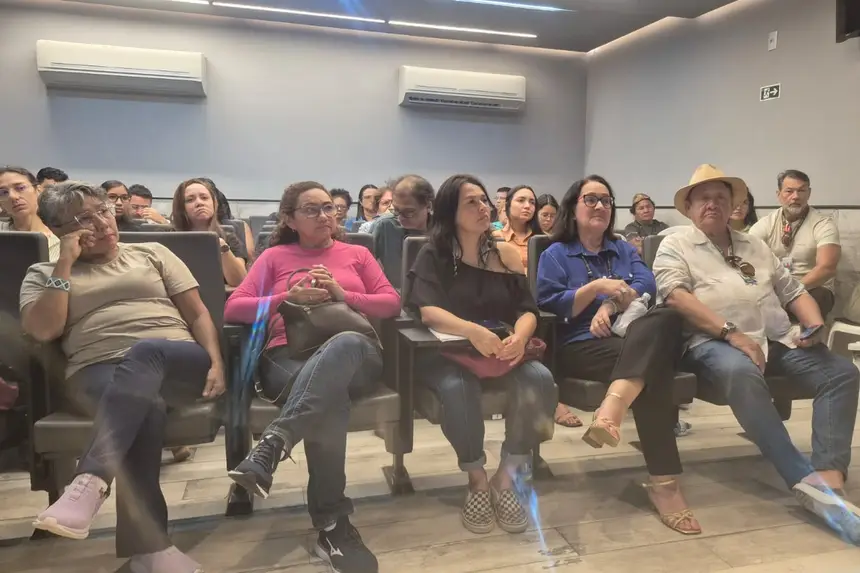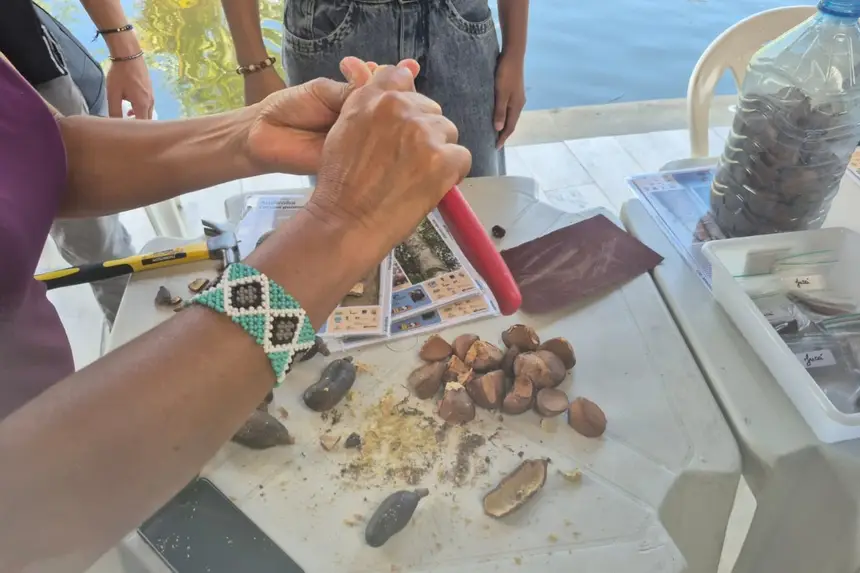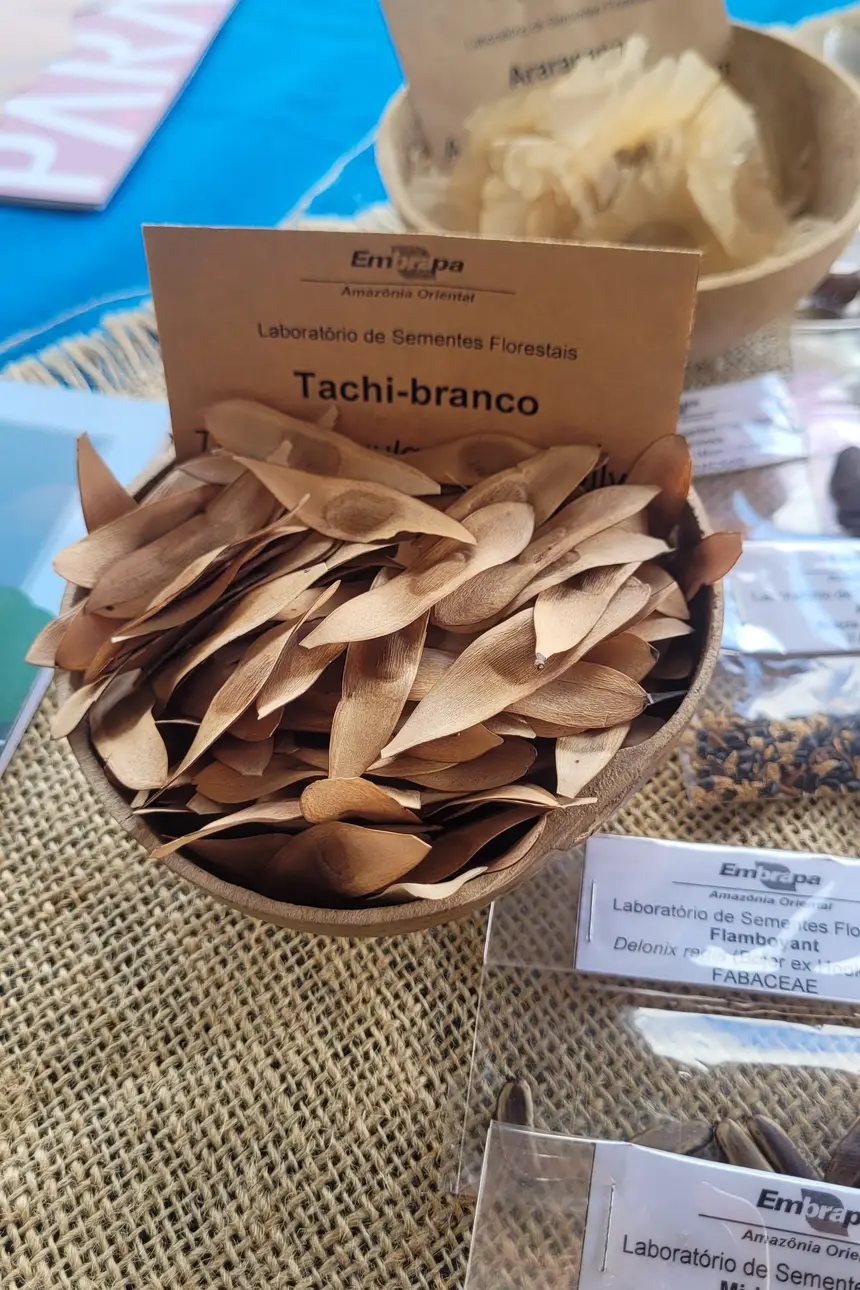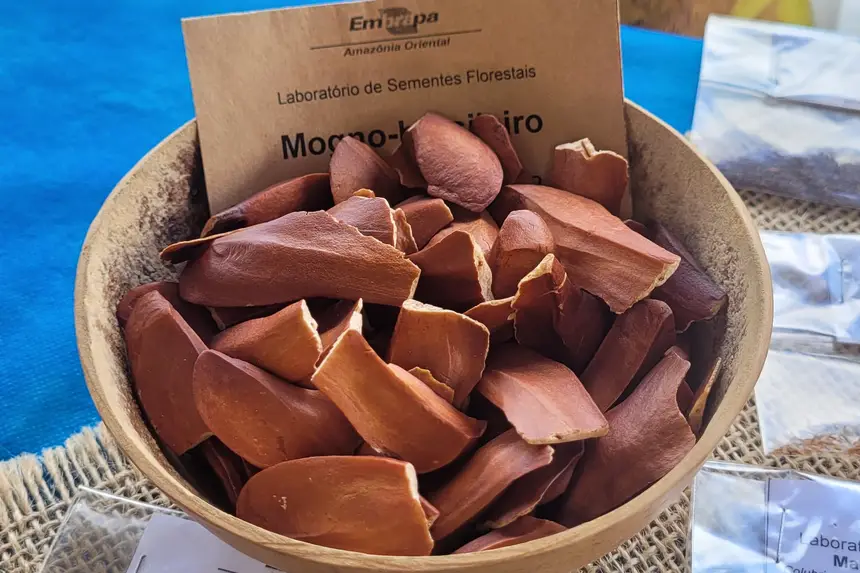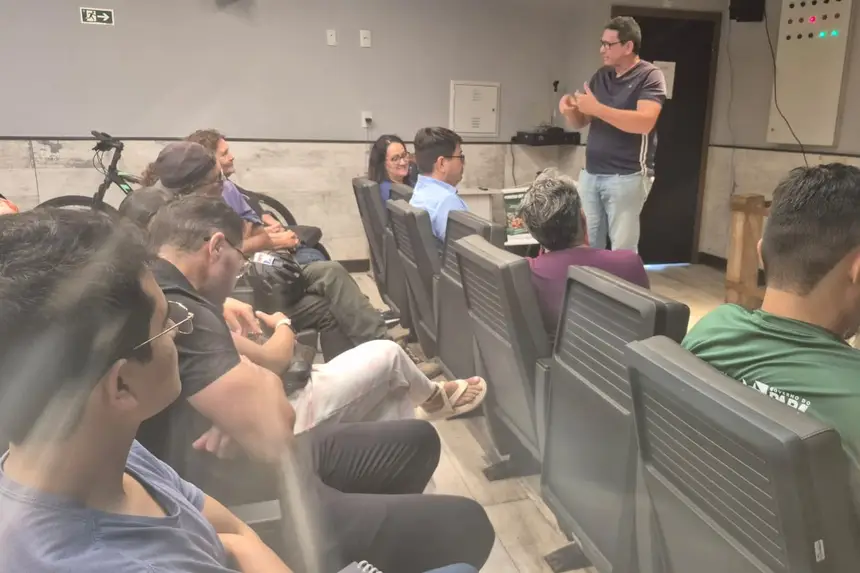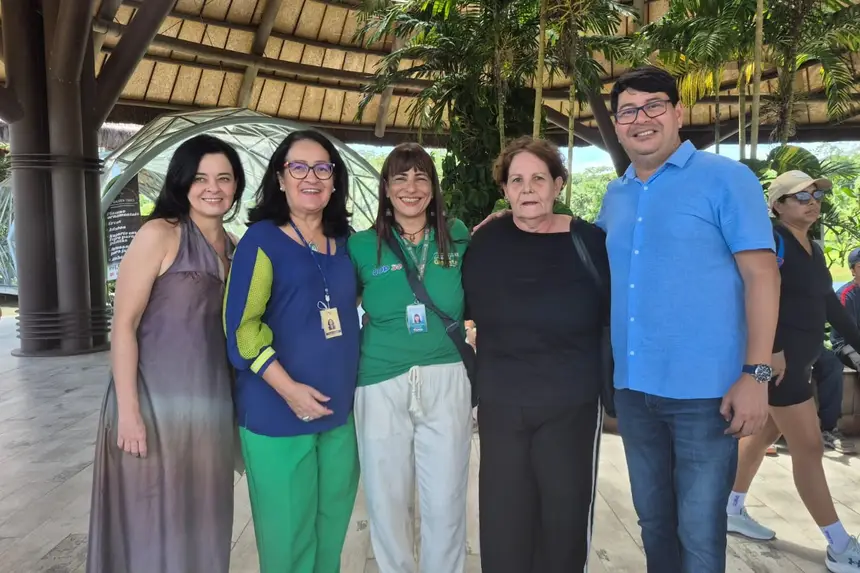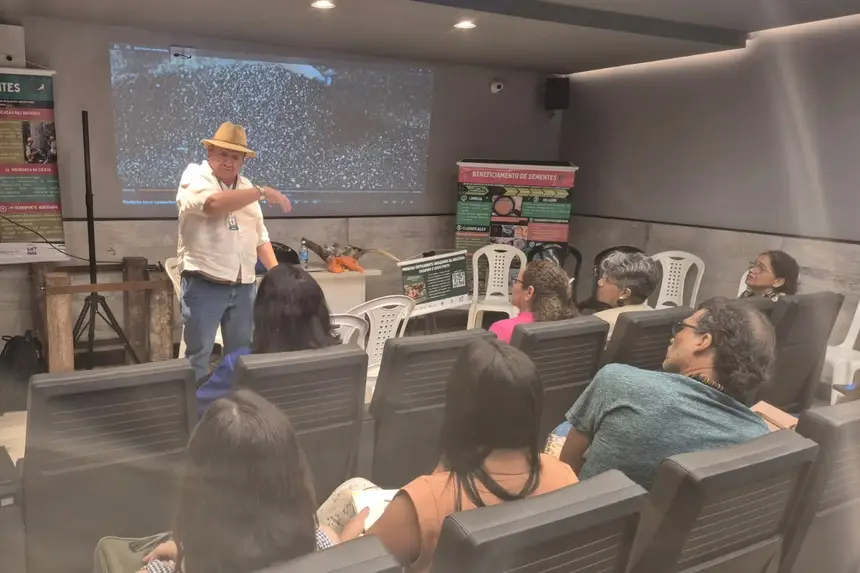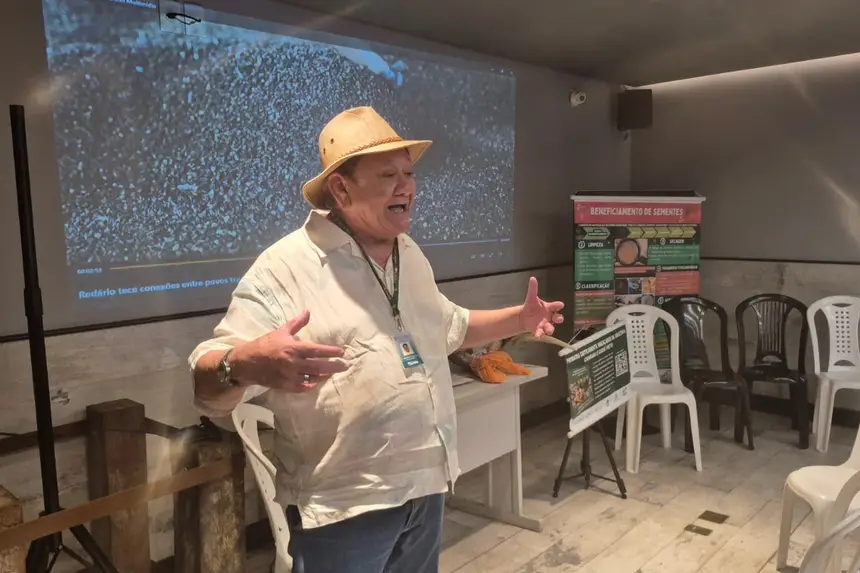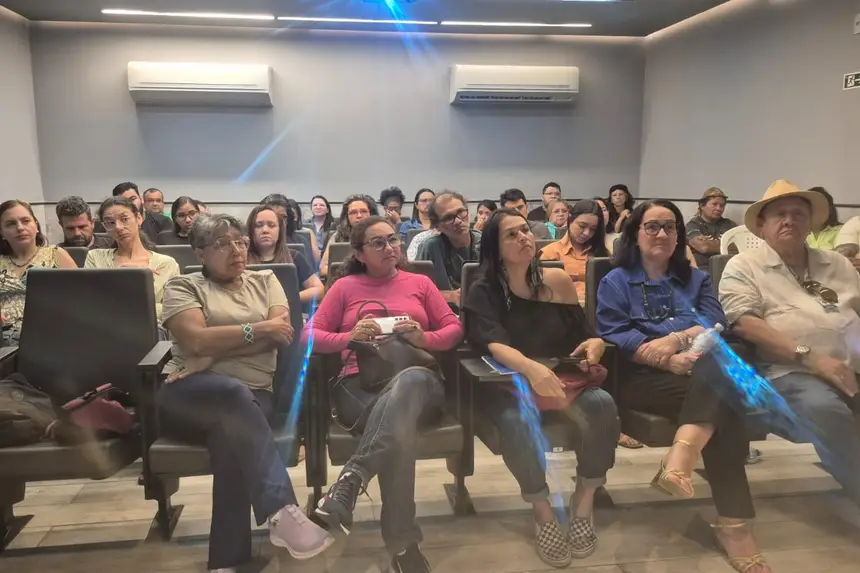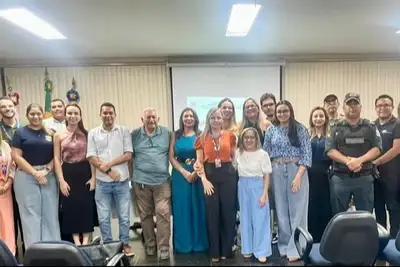Training in Forest Seed Management Strengthens Restoration Policies in Pará
Participants had access to a program that combined theoretical and practical activities, including workshops on seed identification and collection, a seed and seedling exchange fair.
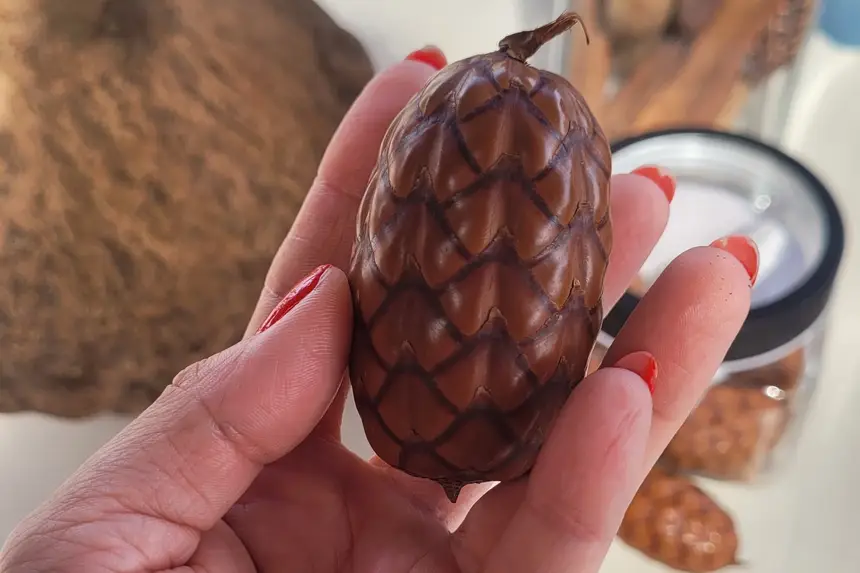
The Utinga Camillo Vianna State Park in Belém hosted the Amazon Forest Seed Management Workshop, an initiative of the Institute for Forest Development and Biodiversity (Ideflor-Bio), in partnership with the State University of Pará (Uepa) and Embrapa Eastern Amazon (Brazilian Agricultural Research Corporation). The activity, held on July 27 and 28 (Sunday and Monday), brought together students, public servants, local residents, and representatives from non-governmental organizations, aiming to promote technical training in forest seed management.
The activity is directly related to the implementation of the State Bioeconomy Plan of Pará (PlanBio) and the State Plan for the Recovery of Native Vegetation (PRNV), two important environmental strategies implemented by the Government of Pará.
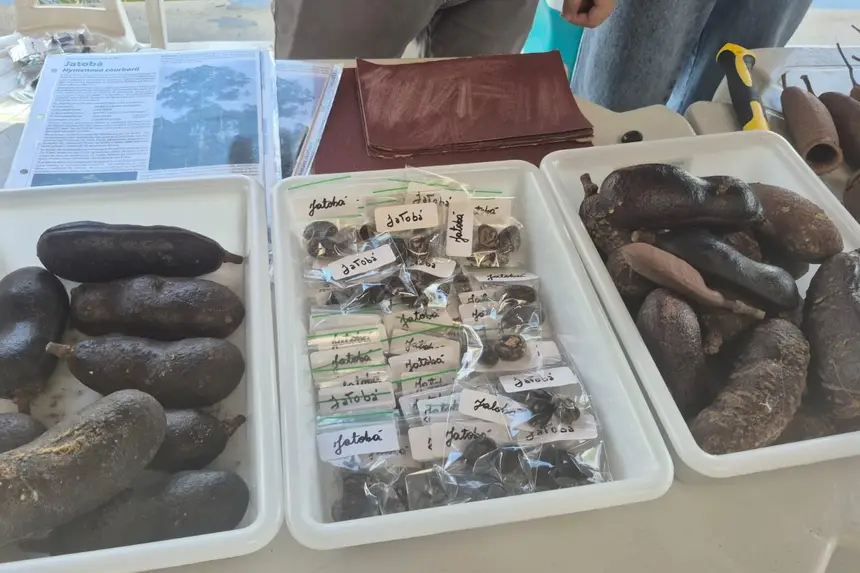
Over two days, participants had access to a program that combined theoretical and practical activities, including workshops on seed identification and collection, a seed and seedling exchange fair, film screenings, and a biocultural exhibition. The actions took place at the Park's Reception Center and in areas of native vegetation, providing comprehensive learning contextualized with the Amazonian reality.
The challenges in the area are significant. The diversity of species, environmental degradation, habitat fragmentation, and climate change make seed management an increasingly complex task. The workshop addressed these topics technically, highlighting the importance of proper collection, storage, and germination practices to ensure the viability and quality of seeds, which are essential for creating more diverse and resilient restored ecosystems.
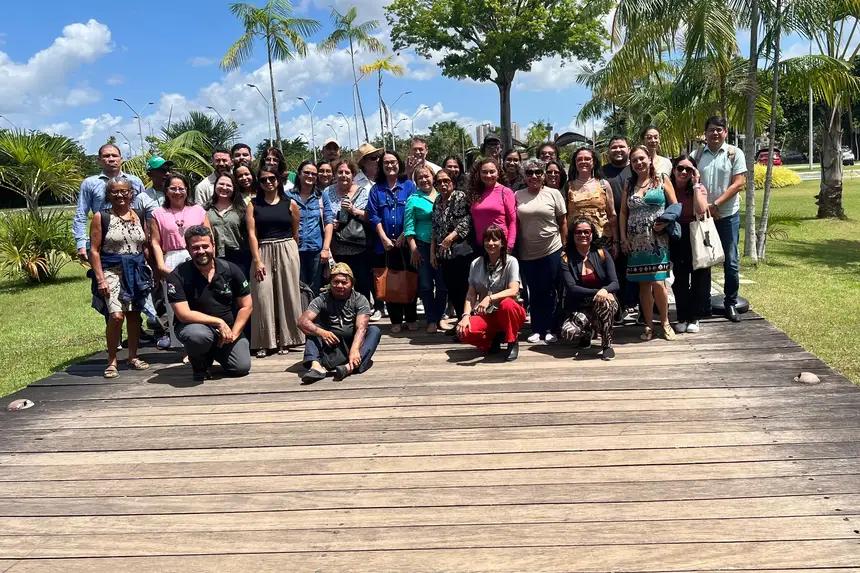
Learning - In addition to contributing to the recovery of native vegetation, the training is directly connected to public bioeconomy policies in Pará. “A solid production chain of native seeds is essential to reconcile environmental conservation and economic development, generating social and environmental benefits in an integrated manner,” highlighted Ideflor-Bio environmental analyst and workshop coordinator, Claudia Kahwage.
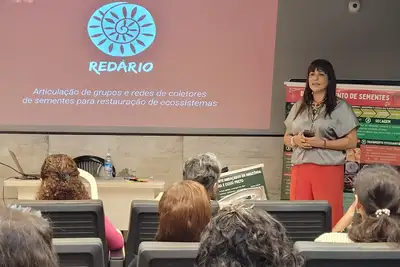
The program included lectures given by specialists from Embrapa, Uepa, and Ideflor-Bio, who shared knowledge about collection, storage, and forest seed networks. One of the highlights was the presentation on the State Forest Seed Network, led by Ideflor-Bio's Forest Contracts Manager, Cíntia Soares, who emphasized the need to enhance inter-institutional coordination to ensure the supply of seeds for restoration projects.
The workshop also served as a space to promote technological innovation, a topic addressed by researchers who highlighted existing gaps in access to modern equipment and methodologies. This reality, according to specialists, can limit the effectiveness of public policies if there are no continuous investments in research, training, and structuring production chains.
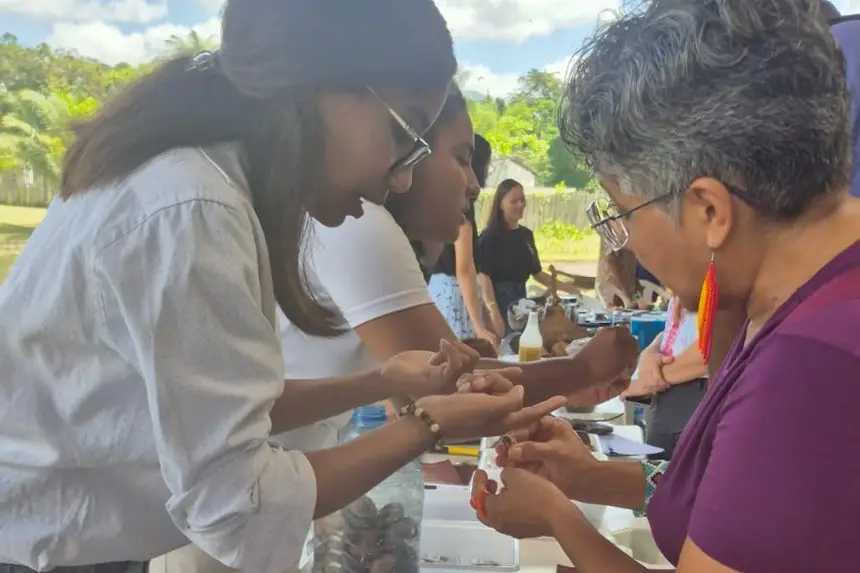
Experiences - The event also featured a moment dedicated to the exchange of community experiences, in a lecture addressing the theme “Seed Muvuca,” presented by the Institute. This methodology, which involves the simultaneous planting of various species, was highlighted as an alternative to enhance the recovery of degraded areas and optimize resource use.
For the organizers, the training represents a significant advance in building more effective public policies. “Forest seed management is a critical step in ecological restoration and needs to be prioritized. Each participant leaves here capable of multiplying this knowledge in their areas of action,” evaluated Claudia Kahwage.
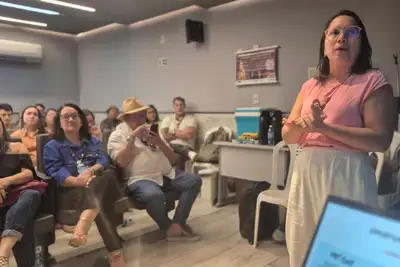
According to Cíntia Soares, strengthening seed networks and production chains is one of the expected outcomes of the workshop. “We need to coordinate institutions, producers, and communities around a common goal. This will ensure the supply of quality seeds, essential for restoring our forests and consolidating the bioeconomy in Pará,” she concluded.


